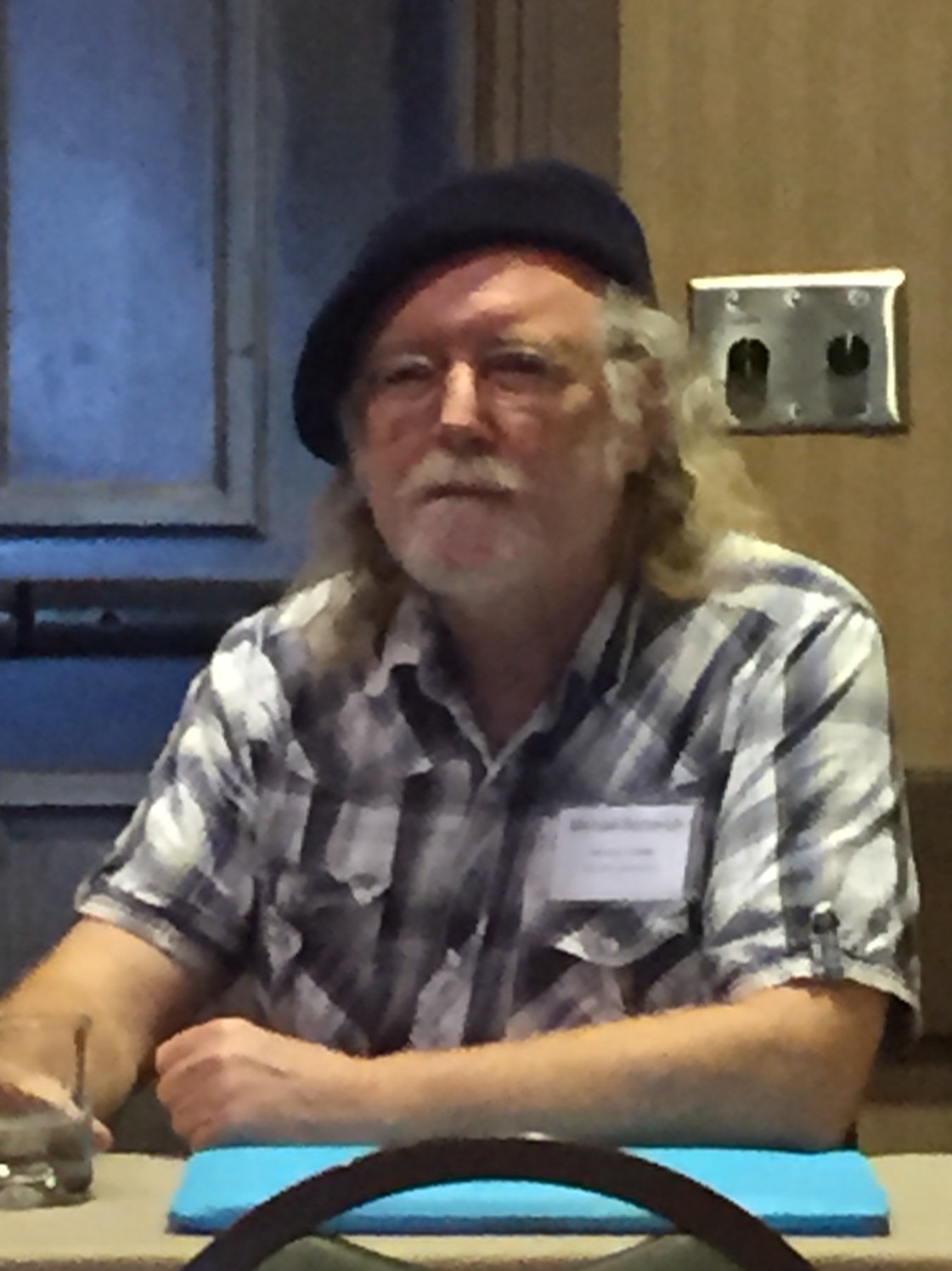“Most likely, I shall starve, a degenerate.”
“I threw away my cigarette, and began to make little mystic symbols in the sand with the rubber toe of my left combat boot. Two early fireflies left the limb of a willow, and drifted past my face in two trailing arcs of yellow that remained marked in the twilit air in afterimages of green and blue.”
 Quotes from two personal letters (1946 & 1949) by poet James Wright, in A Wild Perfection: The Selected Letters of James Wright (2005)
Quotes from two personal letters (1946 & 1949) by poet James Wright, in A Wild Perfection: The Selected Letters of James Wright (2005)
Mail dropped in the mailbox at 15th and Ball gets picked up at 12:30 pm weekdays, 10:30 am Saturdays. The mailbox outside the grocery store I shop at has a pickup time of 2:20. The post office nearest my home has a drive through where it collects dropped off mail three times a day (late morning at 11:00, a mid-afternoon collection at 3:30, and a final pick up at 5:00 pm), but alas they’re down to that lone solitary pickup at 5:00. The main post office on 25th St. has its sole pick up at 5:30. And if I get obsessive—though the truth be told I have only done this once and it was so long ago I no longer remember the occasion or the urgency (it was not to get my income tax in on time, of that I am sure)—I can drive 48 miles up the interstate from Galveston where I live to the central downtown post office in Houston and if I make it by midnight my letter can be postmarked for that same day.
However, if my day is leisurely I’ll stand in line at the post office and request my letter be hand-stamped. In a small gesture of caring that breaks up the monotony of taking letters and plopping them into a bucket alongside the counter, I’ve noticed that many counter clerks smile subconsciously as they carefully align the oversized hand stamp ever so right so that the unsmudged purple ink barely catches the lower inside corner of the stamp. Thus has my stamp been officially cancelled by a most unofficially humane touch.
I run home during the noon hour not for lunch, which I can take anytime, but to check the mail, which my carrier, George, usually delivers between 11:30 and noon. My family has long found this quirk a source of mirth.
For me, every letter received is a delight. And in a world sorely in need of delight, I’ll squeeze every delight I can from every minute of the day that I can. And my mailbox is that place where I most find such easy pleasures. It’s better than Easter because I know where to find the colored eggs and chocolate bunnies. Plus it’s less fattening.
A truism of book publishing holds that while coming out with an edition of collected letters may, but only just barely may, be good for the publishing house’s prestige, it’s hardly good for the bottom line. To no great surprise the book of collected letters the above quotes from James Wright come from ranks 3,132,500 on the Amazon Best Sellers list. Is there any better way I could know the 19 year old man who would later write two of my favorite poems, “A Blessing” and “Autumn Begins in Martin’s Ferry, Ohio” than to read a letter he wrote as a high school senior? I can imagine no reason for ever wanting to go to Martin’s Ferry, Ohio, save for having read that poem.
And there is that second quote, a gem of belles lettres which captures what it was like to have been alive in a particular moment in a particular place. Nonetheless, its beauty would never else have been shared with more than one uniquely privileged, intended reader save for that finding its way into print. That now gives me two reasons for wanting to meander about the environs of Martin’s Ferry, Ohio. And so I confess to another quirk: I collect Collected Letters.
Writing letters. I am convinced this is where my love of writing began. Before I ever had a public reader, there were readers of my crayon notes, pencil scribblings, cards with doodles, and finally letters. My readers responded, albeit sometimes their responses meant calling me on the phone. No matter. We are not all writers. But in the writing of letters I believe that this is where we most readily come to life on the page as we cross our i’s and dot our t’s, with or sans serifs. I understood intuitively then what I know articulately now: each response to every letter channels holiness in its gift of time, in the beauty of its encouragement, and ultimately in the precious act of its love.
So I make no apologies. I am enamored of letters, both in the sending and receiving. And I do so why? Because I am a writer. Letter writing makes us all, makes every participant—sender, receiver, counter clerk, street box pick up person, mail carrier—more fully human.


 Quotes from two personal letters (1946 & 1949) by poet James Wright, in A Wild Perfection: The Selected Letters of James Wright (2005)
Quotes from two personal letters (1946 & 1949) by poet James Wright, in A Wild Perfection: The Selected Letters of James Wright (2005)